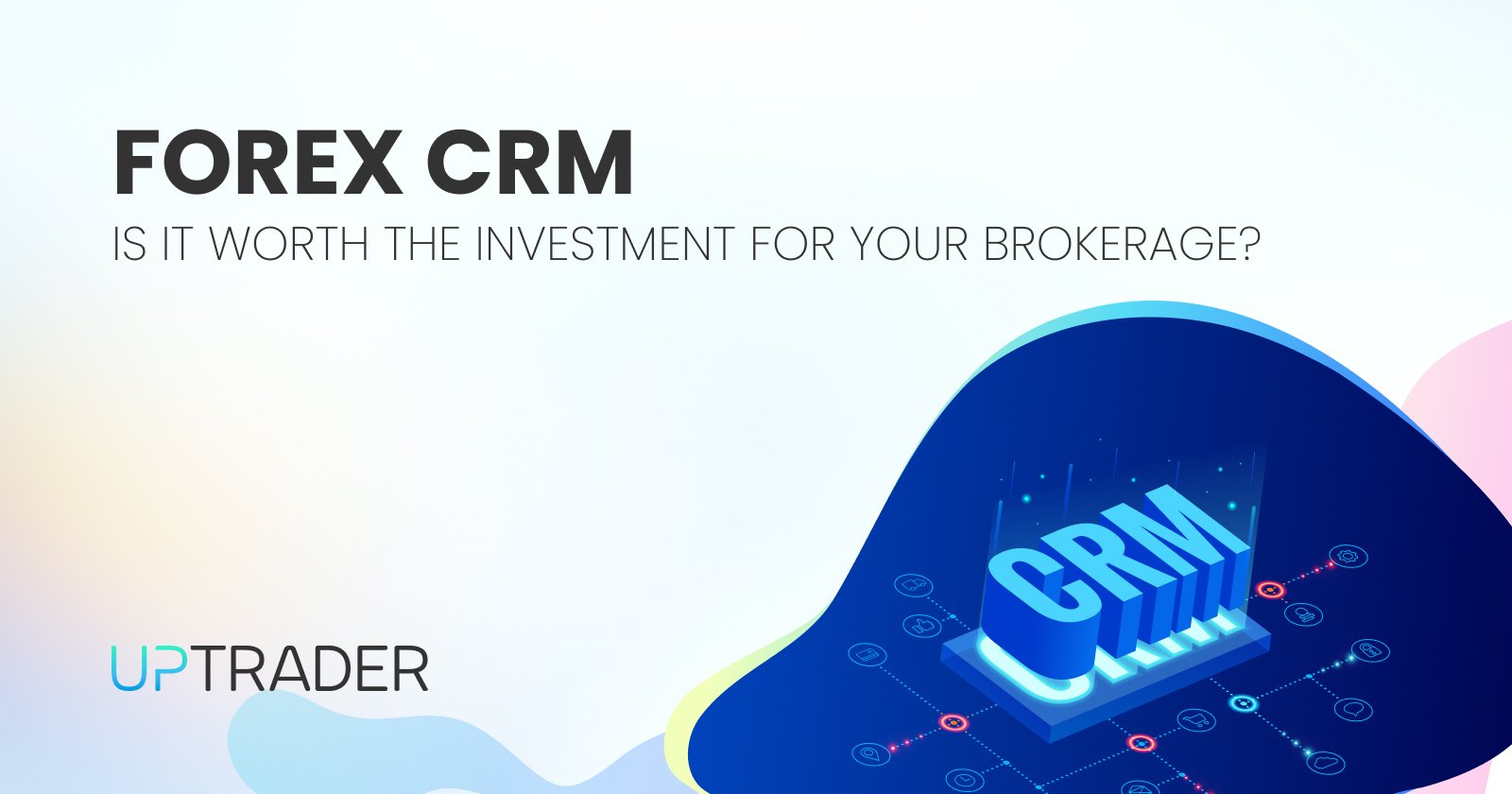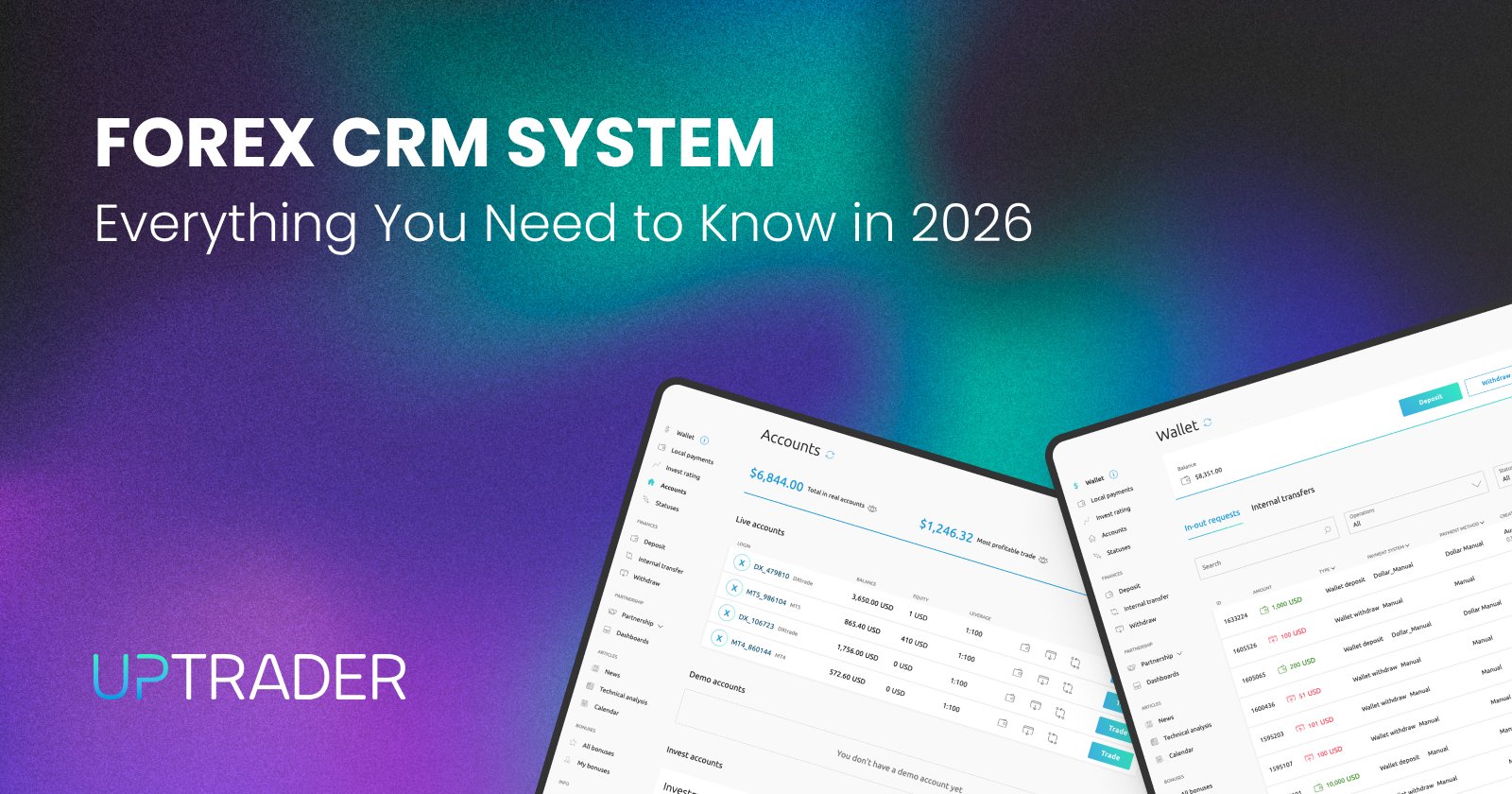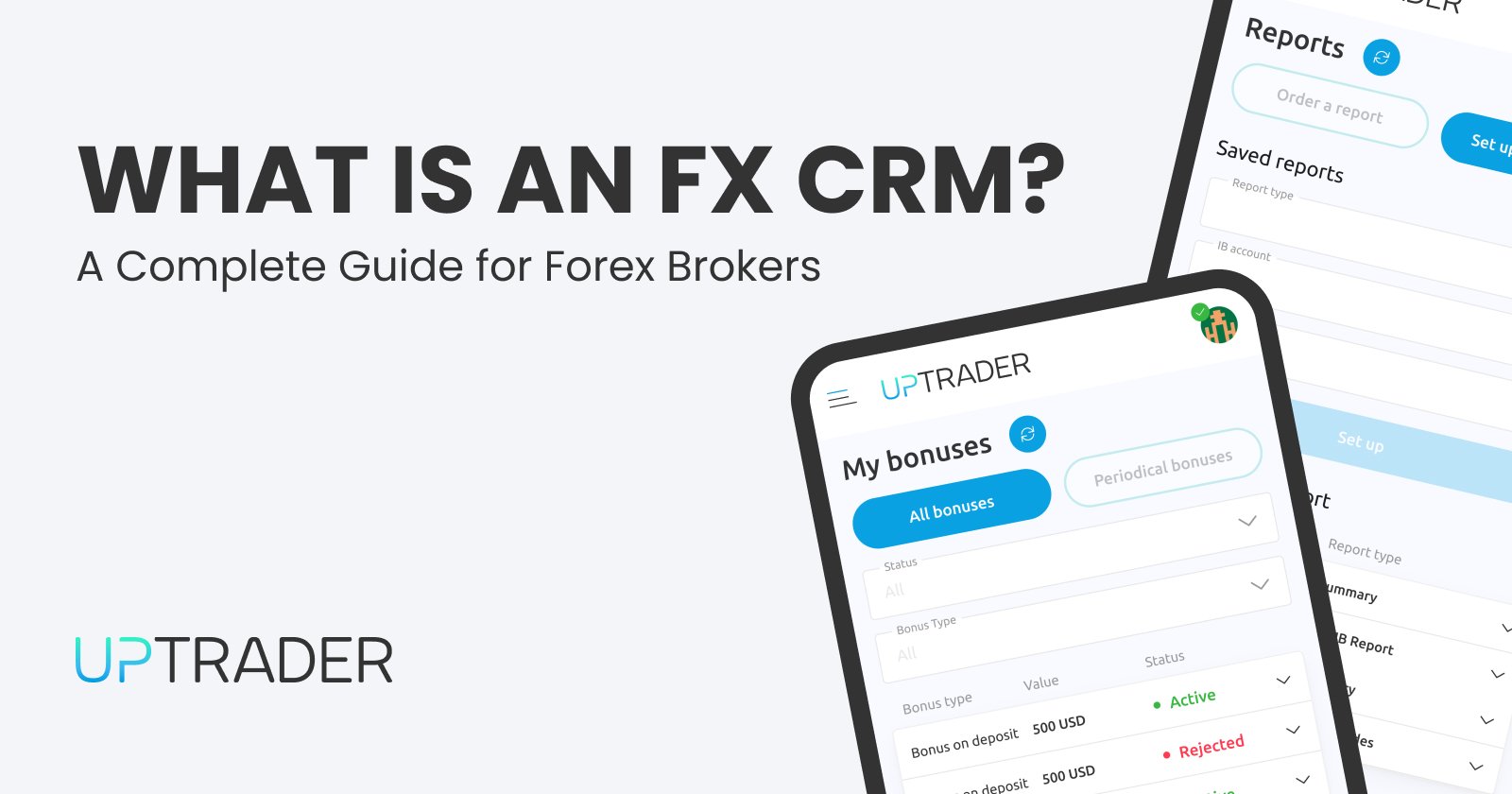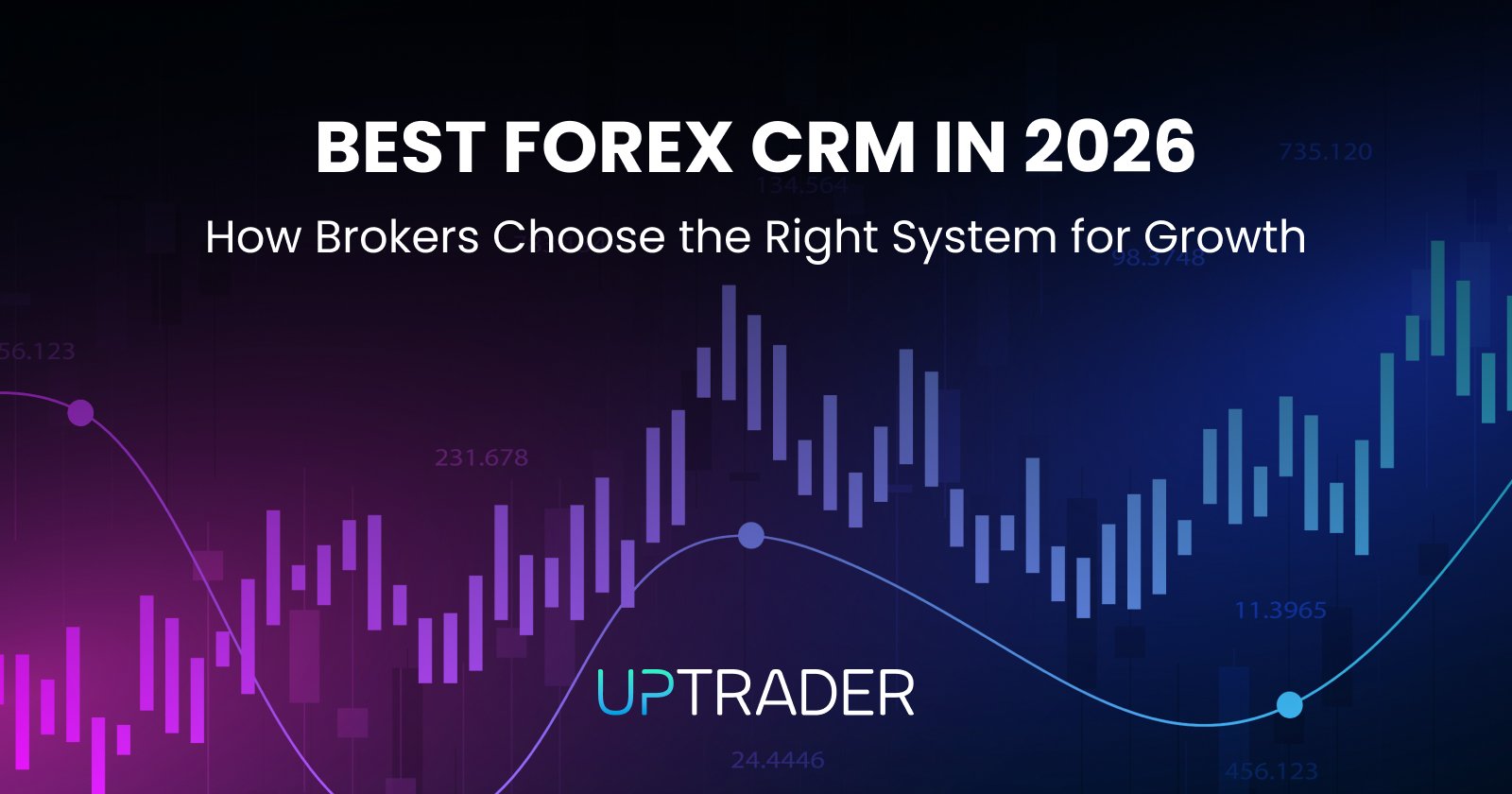Is a Forex CRM Worth the Investment for Your Brokerage?

Share this publication:
Managing a Forex brokerage is certainly no walk in the park. Client handling, trade supervision, compliance, and team alignment are the pillars of a brokerage’s operation. It doesn’t take long to understand that archaic methods like spreadsheets or CRMs just won’t do the job. To expand and keep up with the competition, you will need a bespoke system. This is the business problem a Forex CRM addresses. However, that begs the question: is a Forex CRM worth the money? You might be in the investment assessment stage, trying to justify if the lost funds will reap any rewards. Well the truth is that with the right steps, a Forex CRM is the kind of investment that does not only bring a return but also massively boosts brokerage operations.
Understanding the Role of a Forex CRM
First things first, let’s get the semantics out of the way. A Forex CRM does not equal A Forex CRM does not equal a standard customer relationship management system such as HubSpot or Salesforce. Those instruments are certainly valuable but they are definitely not designed to serve brokerage.
A Forex CRM is tailored specifically to the needs of the foreign exchange market. It connects to trade software interfaces like TP4 or TP5, handles prospect lists, coordinates KYC and compliance processes, monitors transaction inflows and outflows, and even provides support for affiliation and IB (introducing broker) networks.
No need to use many different systems, you put everything under one umbrella. Right from the signup phase, all the activities spanning account creation, verification, fund deposit, trading, and client correspondence are automated within the system. This translates to lower error rates, less tedious work, and more client satisfaction.
Why Your Brokerage Needs Forex CRM More Than Spreadsheets
If you’re still managing your brokerage with spreadsheets, email, or general CRMs, you already know how frustrating it can get. Information slips through the cracks, your sales team struggles to keep up with leads, and compliance becomes a headache. Worse yet, clients notice.
A potential trader signs up on your website, but no one follows up fast enough. Or your back-office staff spends hours chasing documents because there’s no automated KYC process. These gaps don’t just cost you time — they cost you clients and revenue.
These issues are resolved/explained through the centralization of operations and the automation of essential functions with the use of a Forex CRM. Leads are tracked in real-time, assignments are given automatically, and the team has clarity on the necessary actions that need their attention.
The Direct Benefits of a Forex CRM
What does your company profit from acquiring a Forex CRM?
1. Streamlined Client Management
Every brokerage lives or dies by how well it handles clients. A Forex CRM gives you a full 360-degree view of each trader. You see their verification status, deposit history, trading activity, and communication records in one dashboard. It is thus possible to customize your strategy and analyze the best methods to motivate users at any given time.
2. Stronger Compliance
Forex compliance is a must as Non-compliance issues may result in fines and business closure. With a Forex CRM, KYC and AML compliance document collection and verification processes are simplified. Rather than spending several hours on paperwork, your system prepends necessary documents and flags issues in real-time.
3. Faster Onboarding
Time is money. This is especially the case when a lead is keen on making a deposit. Forex CRM’s ease-of-use onboarding is facilitated by auto responders, payment processing, and smooth onboarding onboarding forms. A decrease in ‘client drop off’ results in an increase in deposits as lead closure ratios are defended.
4. Boosted Sales Performance
Productivity The sales team profits due to lower spending and detailed sales tracking. The tracking system pinpoints where the leads originate and the intensity of their interest. The CRM automatically prioritizes leads to be followed up on based on their engagement and conversion potential. This leads to better conversion ratios.
5. Affiliate and IB Management
These types of partnerships are the lifeblood of many brokerages. A better, more efficient CRM has advanced resource management for affiliates and IBs. The sponsor, their referrals, and commissions can be monitored. The proportion of commissions and commissions to valued referrals can be monitored, where affiliates can access their own dashboards such as this to support their reporting. All of this builds a sustainable and better business environment.
6. Improved Client Retention
Winning a client is one thing. Keeping them is another. A Forex CRM helps you spot patterns in client behavior — like a drop in trading activity — so your team can intervene with timely offers or support. Retention is often more cost-effective than acquisition, and your CRM makes it much easier.
Calculating the ROI of a Forex CRM
Here’s the part most brokerage owners care about: return on investment. Is it really worth the cost? Let’s look at it practically.
Imagine you lose just five leads per month because your team didn’t follow up in time. If even half of them would have become depositing clients, that’s revenue you’ll never see. Now multiply that by a year. The numbers get big fast.
A Forex CRM saves loss trades which could happen due to a lack of follow-up any lead. It, also, boosts revenue per client dollars by engagement and upselling. Add in your team’s hours spent on mundane, time-consuming, manual tasks and you’ll realize your system pays for itself.
Rather, a system serves less as an expense and more as an engine which propels efficiency, compliance and growth.
Choosing the Right Forex CRM
Not all CRMs are the same. The last thing you want is to invest in a system which is great in theory but fails to fulfill the needs of your brokerage.
Here is what to consider for:
- Integration with Trading Platforms: Due to the fact that you and your team operate in TP4, TP5 or other, make sure it interfaces with those platforms.
- Customizability: Every brokerage is different. Your CRM should change to your workflows and not box you in a set standard.
- Compliance Tools: With the CTLs of KYC, AML and reporting, these are essential.
- Affiliate / IB Modules: These will greatly simplify the administrative tasks you have if you work with partners.
- Scalability: The system must not fail as your organization grows and must be able to support additional clients, teams, and markets.
- User Friendly Design: CRMs are useful, if and only if, your team is actually inputting the data.
Taking time to evaluate your options ensures you get a CRM that doesn’t just tick boxes but truly enhances your operations.
Overcoming Common Objections
You may still have doubts. Maybe you’re thinking:
- “My brokerage is still small; I don’t need this yet.”
But here’s the truth: waiting until you’re “big enough” often means you’re already too late. A CRM sets the foundation for growth. Without it, scaling becomes chaotic.
- “It sounds expensive.”
Yes, there’s an upfront cost. But weigh that against lost leads, compliance risks, and inefficiencies. In most cases, the CRM is cheaper than the problems it solves.
- “My team might resist change.”
That’s a common challenge with any new tool. The key is choosing a CRM that’s user-friendly and providing proper training. Once your team experiences the time savings, resistance usually disappears.
The Competitive Advantage You Can’t Ignore
Forex is one of the most competitive industries in the world. Clients have endless options, and if your brokerage can’t provide a fast, smooth, and trustworthy experience, they’ll move elsewhere. A Forex CRM gives you a crucial edge.
It’s not just about making your internal processes easier. It’s about creating an environment where clients feel valued, partners feel supported, and your team works like a well-oiled machine.
In other words, a Forex CRM isn’t just worth the investment — it’s a competitive necessity.
Final Thoughts
If you’re serious about running a profitable Forex brokerage, you need more than intuition and spreadsheets. You need tools built for this industry’s unique challenges. A Forex CRM delivers exactly that: streamlined workflows, compliance assurance, sales growth, and stronger client relationships.
Yes, it’s an investment. But it’s one that pays off in higher conversions, lower churn, and a more scalable business. Without it, you’ll spend more time putting out fires than building your brokerage.
So, is a Forex CRM worth the investment? Absolutely. In fact, it might be the smartest investment you make for your brokerage’s long-term success.
If you’re serious about scaling your brokerage, you need more than just a trading platform — you need the right infrastructure behind it. That’s exactly what UpTrader delivers.
Don’t let outdated tools hold you back. Equip your brokerage with the CRM trusted by brokers worldwide.
Book a free demo with UpTrader today and see how quickly you can transform the way your brokerage operates.







